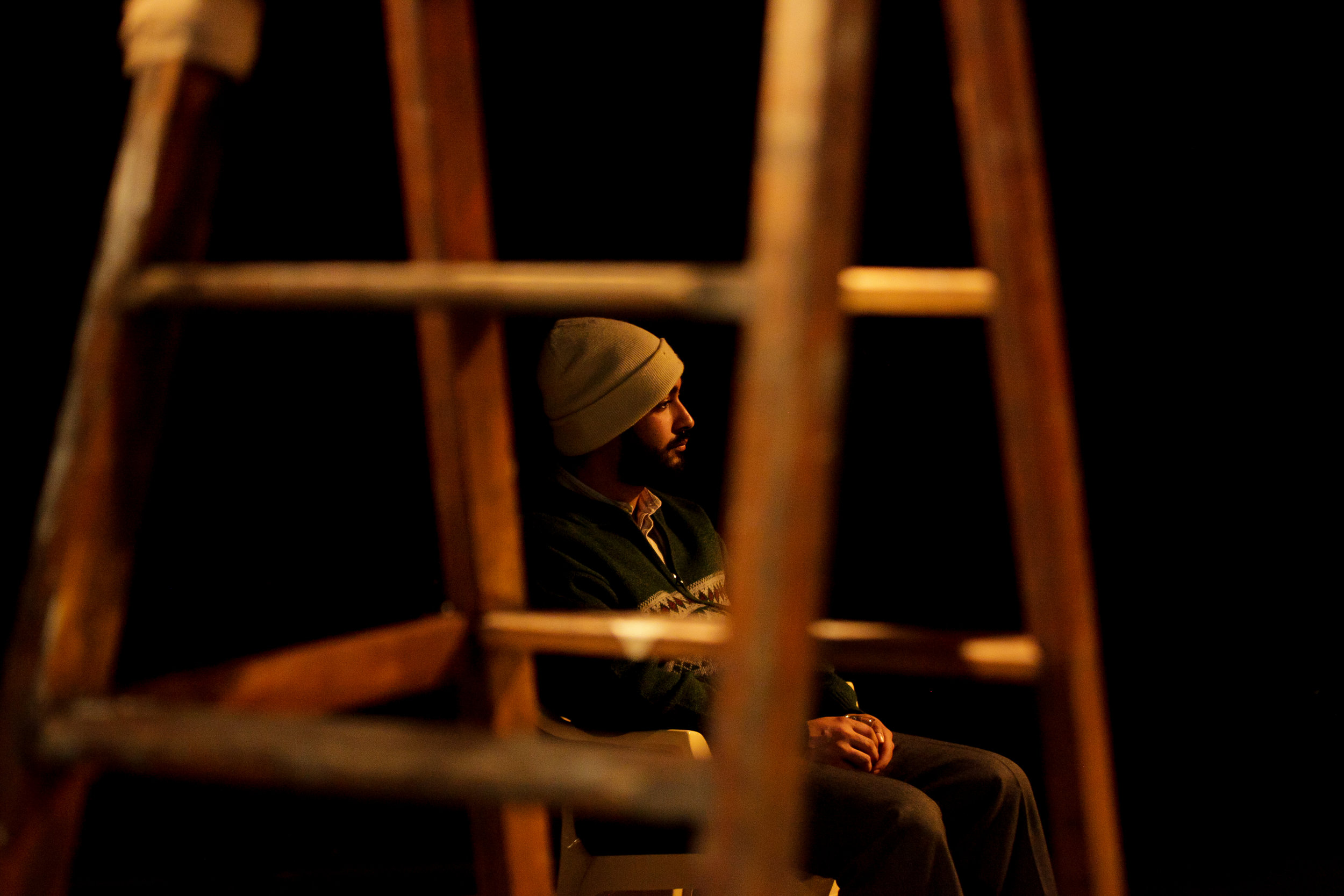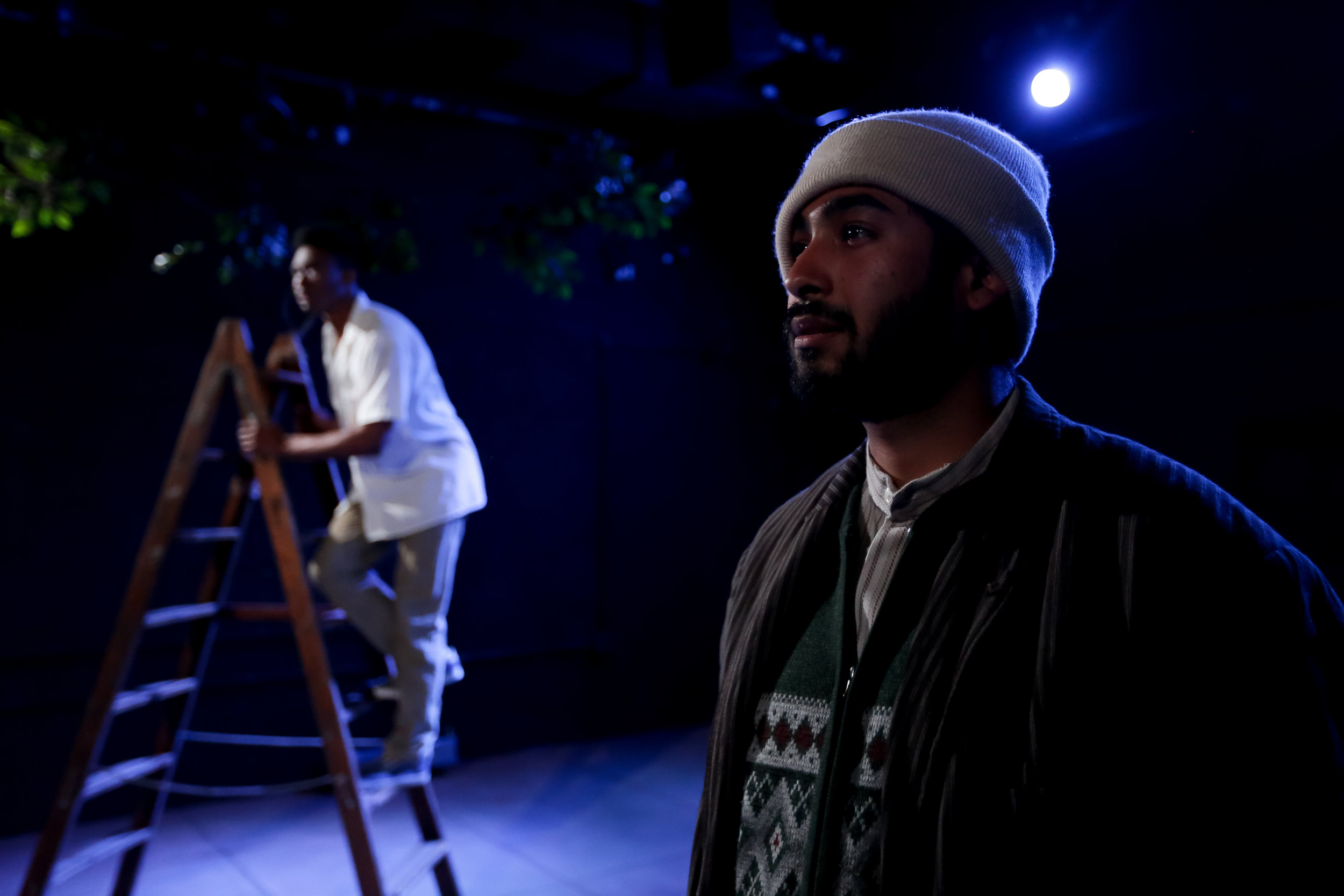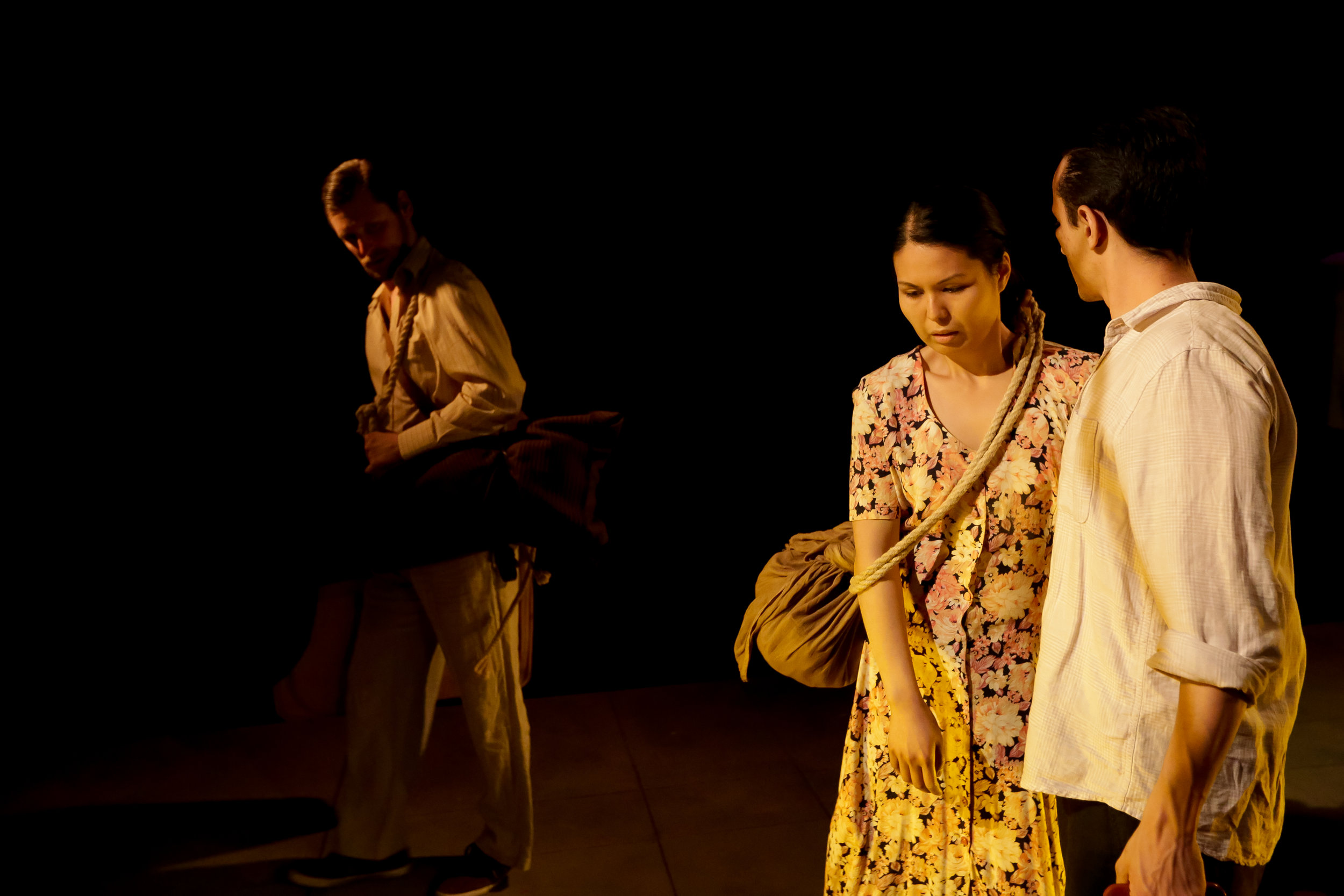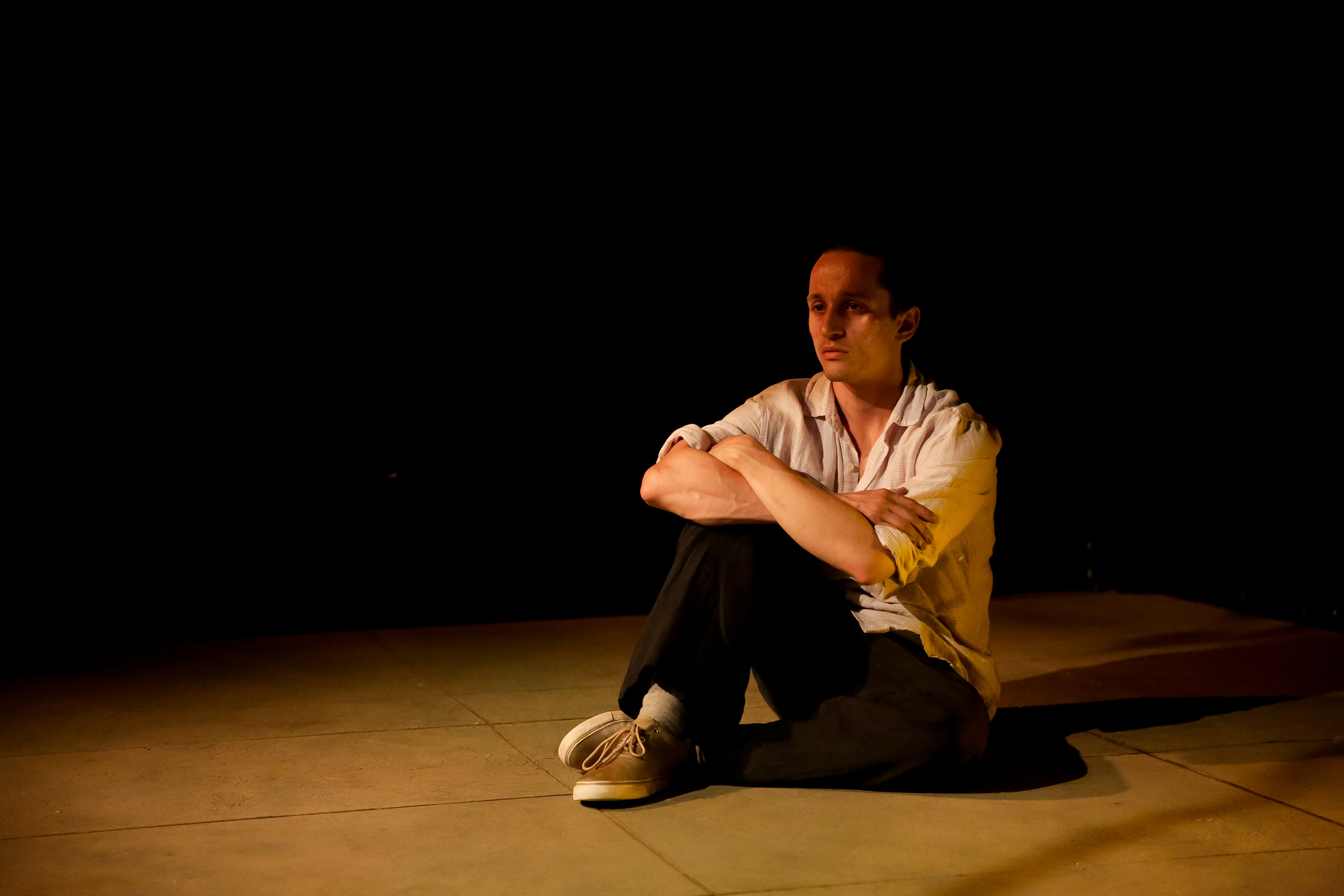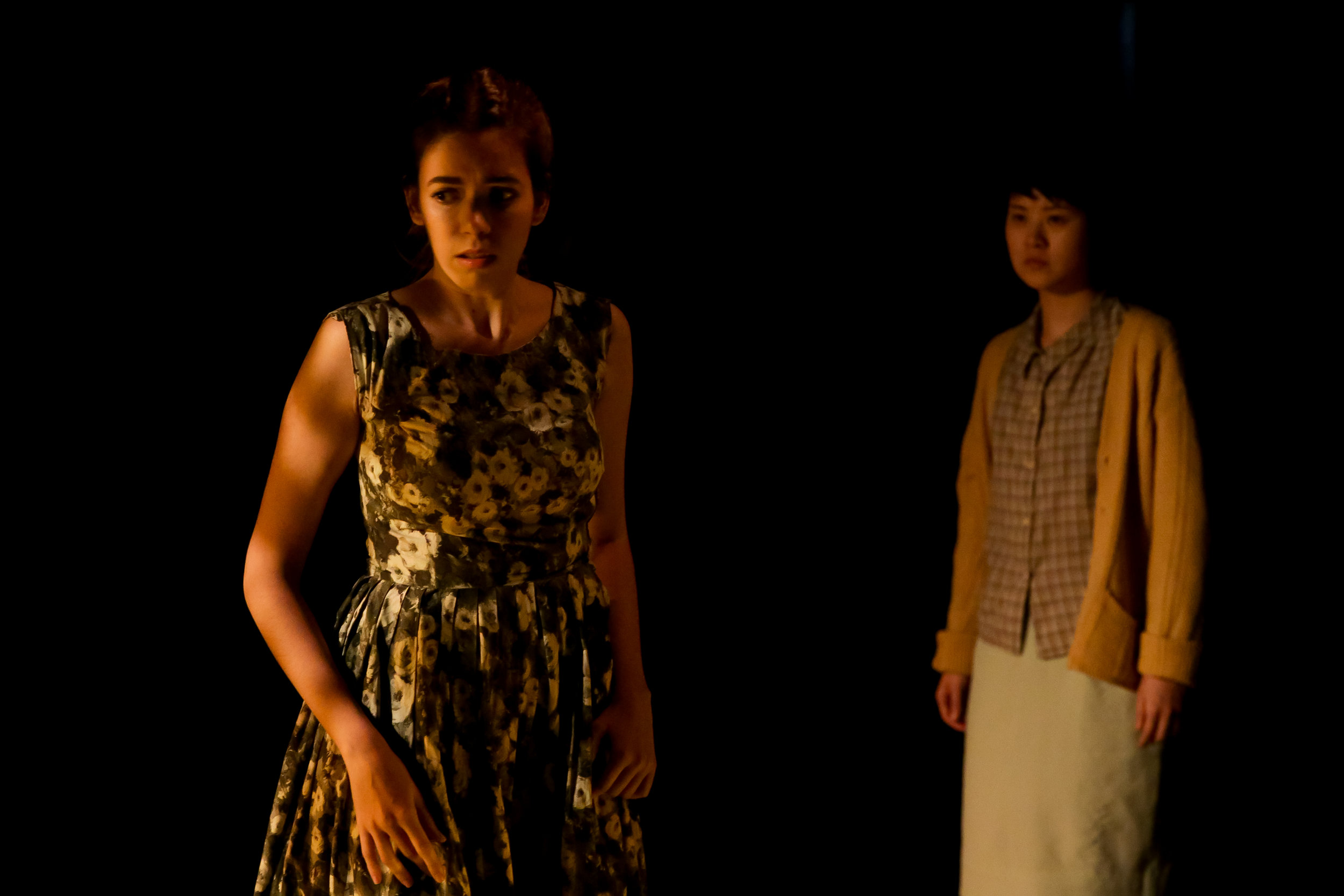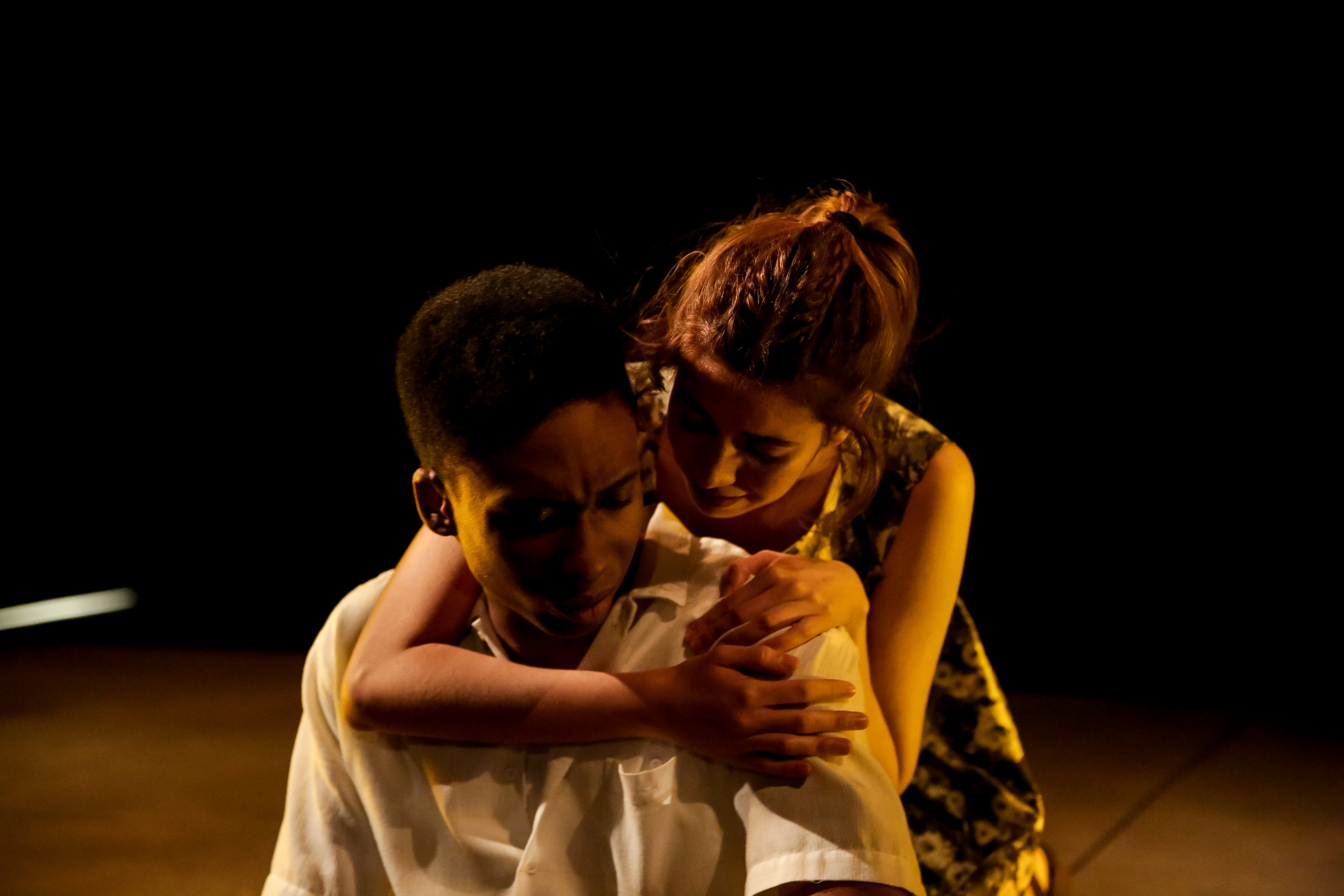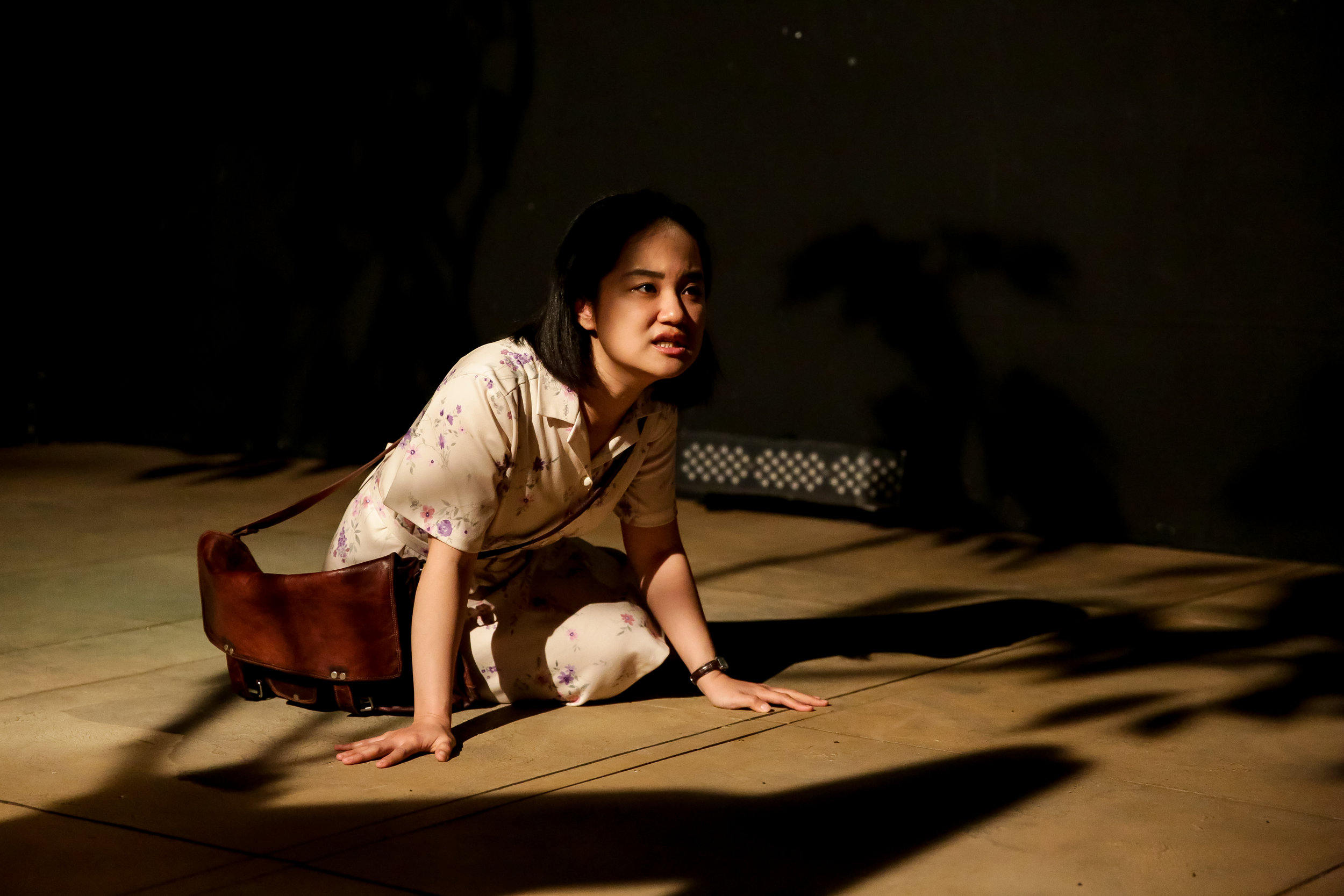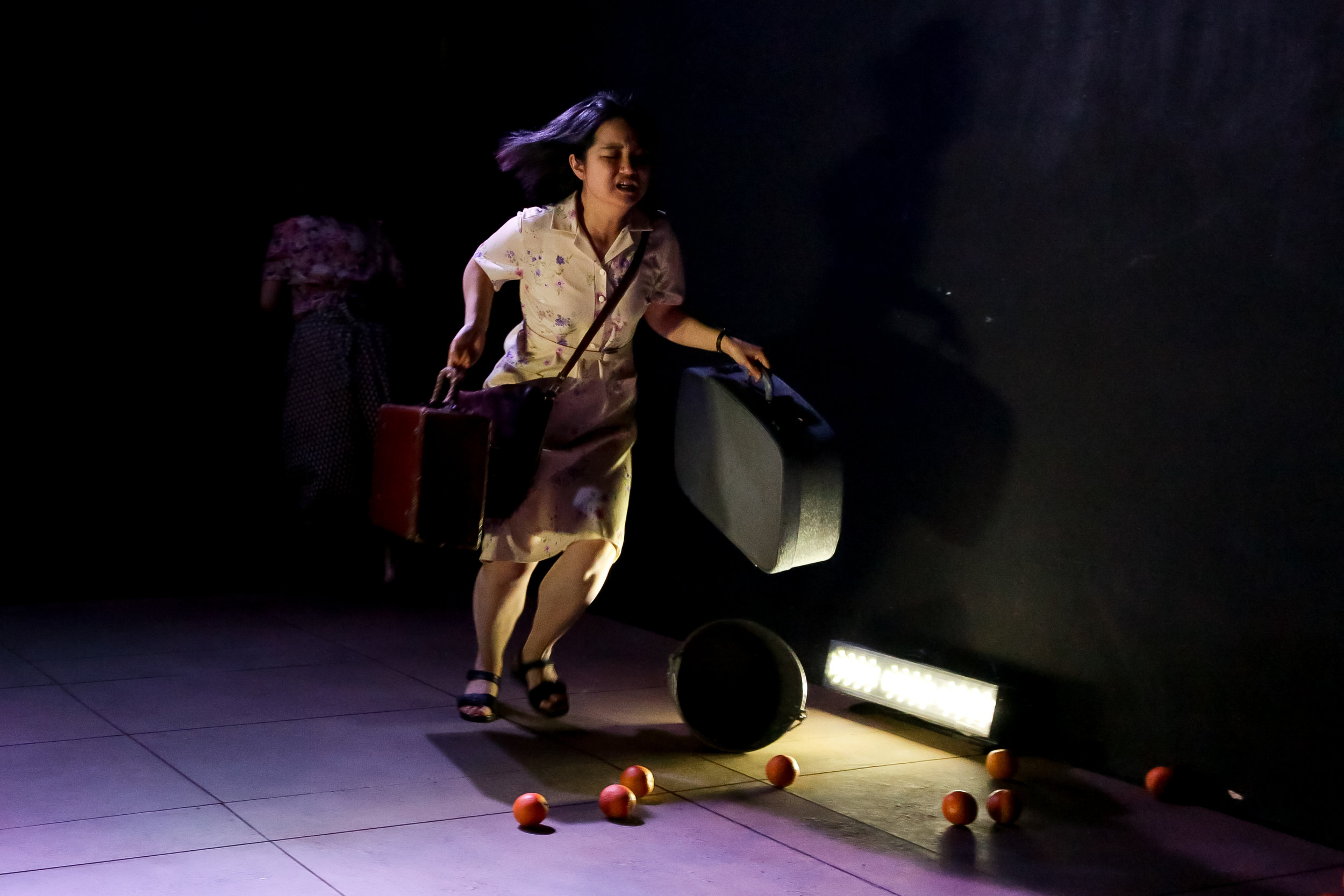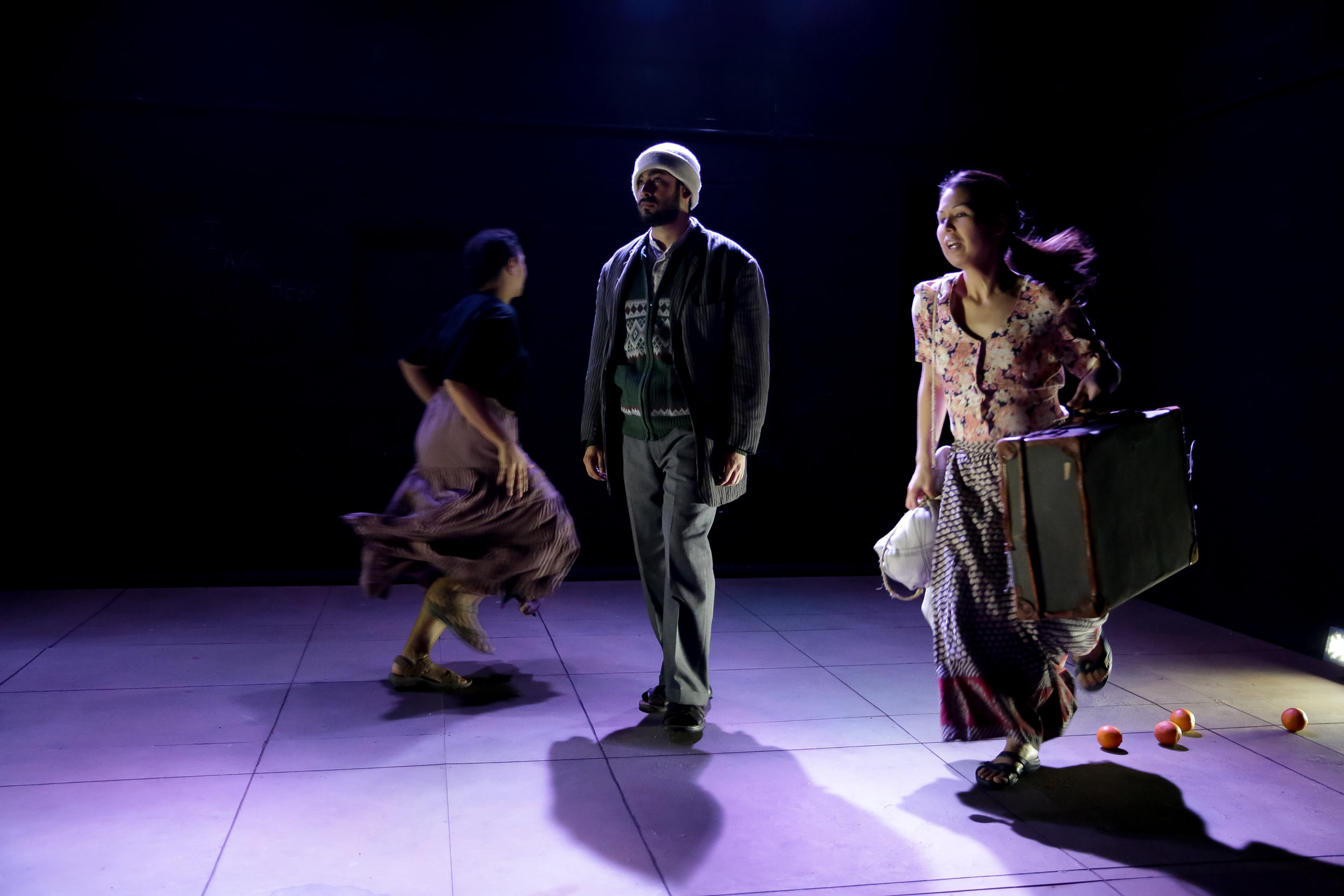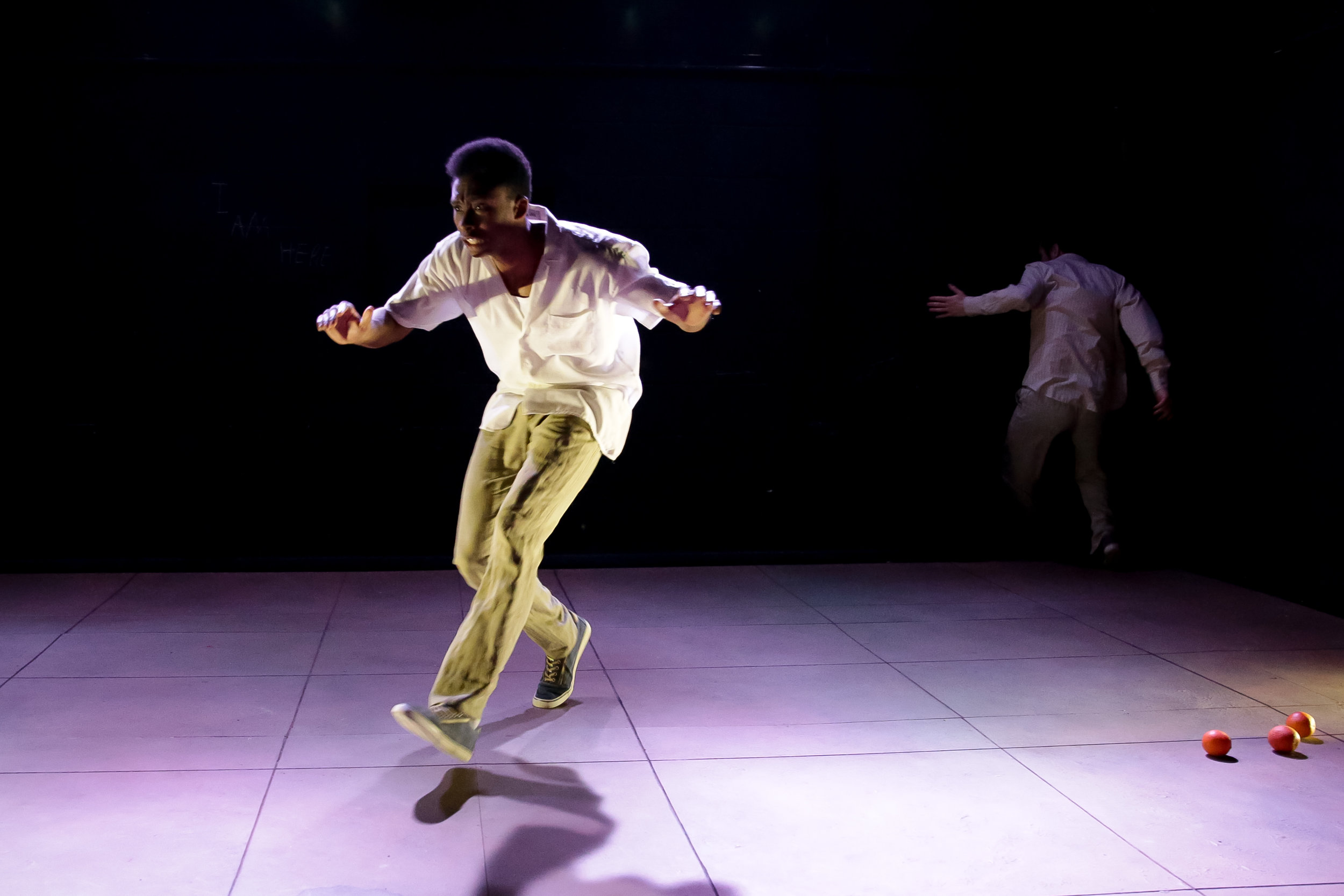I Am Yusuf and This is My Brother
by Amir Nizar Zuabi
with MFA (Acting) Students East 15 2018.
I am Yusuf and This is My Brother written by Palestinian writer and director Amir Nizar Zuabi deals with the aftermath following the ending of the British mandate in Palestine in May 1948. It is a play of remembrance in which the playwright seeks to recall the loss and separation experienced by his forefathers.
This play is about people, just ordinary people – complicated and beautiful – who led a life that was their own and who now lead a life of ‘what if’ ”.
Amir Nizar Zuabi, Haifa, December 2009
Student Reflection 1
The Intracultural approach has led me to find the 'pleasure to play' and the freedom in bringing myself to the room much earlier in the rehearsal process. After working on this practice, that facilitates the performative explorations of identity, I realized that practicing one’s identity is not only valid, but also powerful in a rehearsal room.
I feel that I am more able to find the ‘pleasure to play’ when I am working. This amazing process has encouraged me to bring my crazy and unique self to the stage and to trust that something wonderful will happen when you establish the complicité.
It also made me realise how much one can be trapped in the text; holding on to assumptions about how your character should be played, forgetting that the actor who's playing can bring his uniqueness and truth to the scene. On the other hand, prioritizing the actor over the text at the outset of the process can result in true, unique and detailed performances.
I feel more comfortable in my own skin and more open to be present on stage.
Student Reflection 2
Working with Kristine is such a different experience. I’ve never thought a rehearsal room could be so stress-free, and all that we need to do is just be ourselves, feel the flow, keep the complicité with scene partners, and enjoy what you are doing. It’s hard to imagine that without tons of research-based character work and actions/obstacles, a character would be true and believable on stage - but it works so well this way. She has really sharp eyes and she’s so encouraging in helping the actors find their uniqueness, and marry them into the work.
The most important thing I learnt from her intracultural workshop is to value myself. As an Asian actor, I used to worry about not being accepted by local audience because of the cultural differences, and thus tried really hard to change myself and fit into this English-speaking world. However, I didn’t realize by doing that, I also lost myself, my uniqueness as an actor, which is the only thing that would keep me in the industry. With Kristine, I got the chance to work from my own culture, and the moment I started to improvise in my own language, everything just felt so right. It’s that moment that I realized by being ourselves, respecting our own culture, we actually figured out a way to connect with other cultures. After that, even when I was doing the text in English, or doing it bilingually, it still felt like my own words, rather than me trying to memorize my lines or being like the character that everyone could imagine. By working with her, I regained my confidence both on stage and as an actor myself, and started to enjoy more in other auditions/rehearsals too.
Student Reflection 3
Before I came to England, I was an actress in Taiwan and I worked in the theatre. I didn’t have the environment which helped me to improve my English speaking and listening abilities then. So from the first day I studied in East15, English was always the main thing that my acting teachers asked me to work on it hard. And I never doubted it because I knew I studied in an English speaking country.
Because of my language barrier, I got very serious stage frighten. I felt extremely nervous every time when I needed to speak English and performed on the stage. I also felt sorry that I let my classmates wait for me to break the language wall during the rehearsal process. I was always stuck on the stage because of English
We had Intra-Culture workshop with Kristine this March. Before the workshop, Kristine noticed us to prepare a monologue for the class. So I chose a monologue I liked and prepared it well just as I usually did in auditions or any other skill classes. But Kristine didn’t ask us to do our monologues right after we got into the studio, but led us to play lots of exercises instead. It was the most exciting process I’ve ever been through. All the exercises Kristine brought into the studio were meant to be the same goal – play with joy and complicité. I forgot my worries about the texts then, and I just played happily with my colleagues. During certain exercises, Kristine said we just needed to say the lines when we felt connection with our partners. And it could be just some simple lines from our monologues. I could clearly feel my intuition and passion come out from my heart and my body naturally when doing these exercises.
The scene I got to do with my colleagues was “Three Sisters”. Lots of training about Chekhov I had just came up to my head. I had only one night to remember all the lines so I was stuck a little bit on the stage due to English again although I thought I was confident that I already did “Three Sisters” one year ago. Then Kristine asked me to improvise the scene in Taiwanese. It was surprising that everything just came out naturally from my mouth and my body without any problem. And I never knew it would be so comfortable when speaking my mother language on the stage. I could just focus on listening and responding with confidence (Of course I needed to understand the whole story lines and the scene first). And it seemed something released in my heart and I even didn’t notice the time passed when I was on the stage – so joyful.
Then, we started to rehearse a new play “I Am Yusuf and This Is My Brother”. Kristine helped us to improvise each scene efficiently for the first two weeks. She told me that when I spoke English, it seemed I wore a mask on my face. I was so shocked that I got this comment from her because I thought I’ve already overcome my English frighten. I even didn’t notice it still existed until Kristine pointed it out. Then she asked me to improvise the scene in Taiwanese, so it meant that I could just release what I wanted to say anyway and my American classmates also needed to responded it immediately although he couldn’t understand what I said. I didn’t realized it would be so different from my whole body and feelings when I spoke English and Taiwanese. And that’s what Kristine wanted, break through the “language wall” and be yourself. Don’t pretend to be the character, but say the lines as yourself, as a human being. Kristine asked me to improvise everything in Taiwanese, and then half of Taiwanese, half of English. It was the first time for me not to put the focus on the “lines” and also tried to change myself to fit the character in my own imagination. And I felt it was also the first time I completely realized what lots of acting coaches said ,”You are enough.”
If I can feel more as a human being when I speak Taiwanese, then Kristine would like me to keep that part in Taiwanese. Then the only thing I had to make the effort was to maintain the same motivation that I spoke Taiwanese when I needed to speak English. And it was really helpful to make my every word and every movement on the stage become truthful, especially “I Am Yusuf and This Is My Brother” was such a powerful, truthful play.
